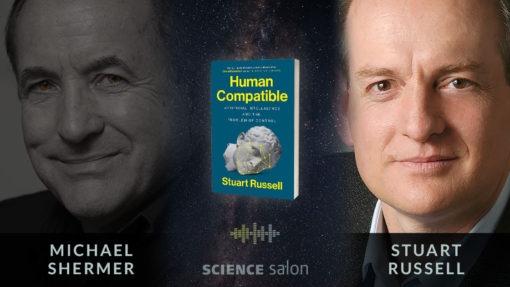election hacking

Shermer and Redmond discuss: why we have political duopoly (Duverger’s law) • parties vs. policies • Are we living in a post-truth, fake-news, alternative facts world? • How do we know political polarization is worse now than in the past? • acquiring, perceiving, and evaluating political information • evaluating: false political information, political numbers and arguments, claims of rigged election • whataboutism • cognitive responsibilities of citizenship • cognitive biases • political polarization • myside bias • numeracy vs. innumeracy…

In this review of investigative journalist Kelly Weill’s important book on the flat Earth movement, the people involved, and their psychology, readers will discover that the flat Earth movement contains a great diversity of beliefs. As an example, an obvious question is why don’t we find an edge? Well, some say, there is an edge—it’s the Antarctic which forms an ice wall around the flat Earth to keep the oceans from spilling over the edge. But regular people can’t go…

Over the last six years, allegations of stolen elections and massive election fraud have proliferated in the United States. The significance of claims that the results of one election—let alone several—were fraudulent, cannot be overstated. When citizens believe an election has been stolen, chaos, riots, and the potential collapse of political systems ensue. That means the question of whether an election was stolen or rigged should demand the highest level of scrutiny and the highest degree of skepticism. In this…

Shermer and Rosenfeld discuss: why we have a duopoly • gerrymandering • voting restrictions • how we know all elections are not rigged • abortion • immigration • US foreign policy • the rise of conservative and liberal think tanks • ideology • political polarization • political leanings of industrialists vs. tech billionaires and rural poor vs. urban poor • Trump and 2016, 2020, and 2024 (are we facing civil unrest as never seen before?)…

As we approach the sixtieth anniversary of the violent public assassination of President John F. Kennedy, over half of all Americans surveyed continue to believe that he was killed by a conspiracy involving multiple assassins. Shermer and Gagné discuss: conspiracies and conspiracy theories; what role conspiracy theories play in society; who believes them and why; why conspiracy theorists rewrite the past; Trump and rigged election; Obama Birtherism; and more…

Its messaging can seem cryptic, even nonsensical, yet for tens of thousands of people, it explains everything: What is QAnon, where did it come from, and is the Capitol insurgency a sign of where it’s going next? Mike Rothschild is a journalist specializing in conspiracy theories. He has been collecting stories for years through interviews with QAnon converts, apostates, and victims, as well as psychologists, sociologists, and academics. He is uniquely equipped to explain the movement and its followers.
In episode 213, Michael Shermer speaks with Mike Rothschild, a journalist specializing in conspiracy theories, about QAnon and its followers, based on his book The Storm Is upon Us: How QAnon Became a Movement, Cult, and Conspiracy Theory of Everything. PLUS, we present as a free PDF download the Memorial Tribute to Skeptic’s Art Director and Co-Founder, Pat Linse, which appeared in Skeptic 26.3 (2021).

How can we ensure AI never have power over us? Stuart Russell says we can rebuild AI on a new foundation in which machines are designed to be inherently uncertain about the human preferences they are required to satisfy. Such machines would be humble, altruistic, and committed to pursue our objectives, not theirs. This new foundation would allow us to create machines that are provably deferential and provably beneficial.
In Science Salon # 118 Michael Shermer speaks with distinguished artificial intelligence researcher Stuart Russell about this new book Human Compatible: Artificial Intelligence and the Problem of Control. PLUS social psychologist Carol Tavris discusses two new books whose authors separate what’s right in the pursuit of justice from what’s self-righteous.
In Science Salon # 52, Michael Shermer speaks with Bruce Schneier, special advisor to IBM Security, and author of Click Here to Kill Everybody: Security and Survival in a Hyper-connected World. Plus, in response to a NYT op-ed by Northeastern U. Psych. Prof. David DeSteno, Michael Shermer presents Harvard psychologist Steven Pinker’s full reply to DeSteno’s question about what science can learn from religion through testable hypotheses about human behavior.

Shermer and Schneier discuss: how to protect yourself from being hacked and what to do if you are hacked • the motivation of hackers • the probability of your car or an airplane being hacked • Edward Snowden and Wikileaks • The Pentagon Papers and Daniel Ellsberg • what would happen if the electrical grid was hacked • cyberdeaths and how the government will respond with regulations when they happen • Russian hack of the 2016 election and how to…
















